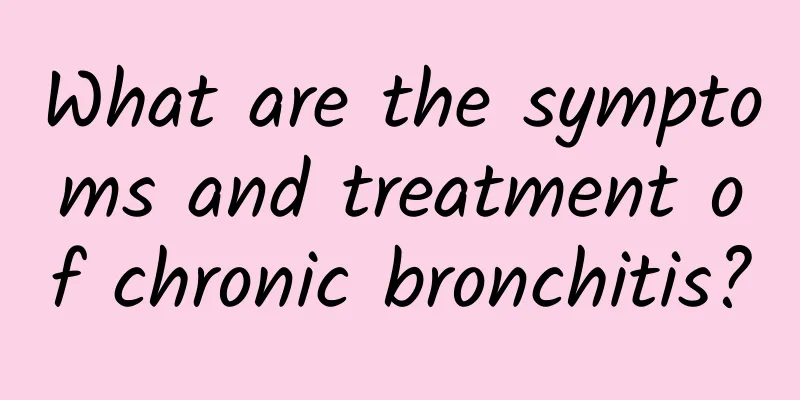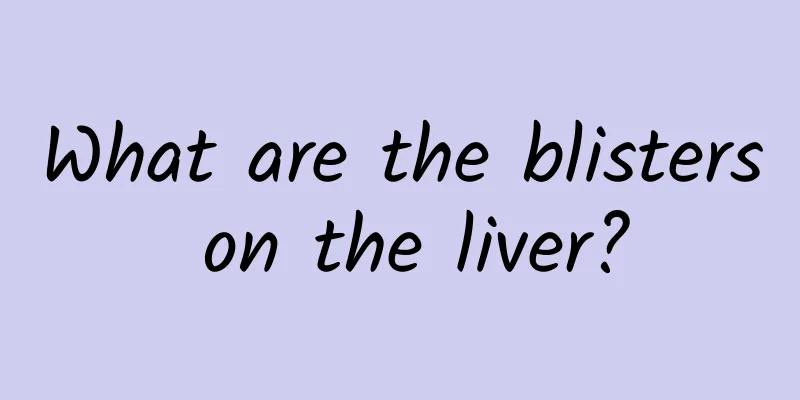What are the symptoms and treatment of chronic bronchitis?

|
The symptoms of chronic bronchitis are shortness of breath, a squeaking sound in the patient's throat, and phlegm. The treatment of chronic bronchitis mainly focuses on expectorant, antitussive, antispasmodic and antiasthmatic drugs, and antibiotics should not be used. 1 Control infection: Patients’ condition often worsens due to respiratory tract infections, and they must be given anti-infection treatment in a timely manner. Use drugs alone or in combination, intravenously or orally, usually 7 to 10 days as a course of treatment. For severe infections, penicillin G, ampicillin or cephalosporin can be given by injection. After the condition improves, oral antibiotics can be used to consolidate treatment, and erythromycin can be used as an option. 2 Expectorant and antitussive drugs: While applying anti-infection treatment, expectorants and antitussive drugs must be given to improve symptoms such as cough and sputum. Commonly used medicines include ammonium chloride mixture, bromhexine, etc., or symptomatic Chinese patent medicines such as fresh bamboo juice, snake gall and Fritillaria cirrhosa liquid. For the elderly and weak, those who are unable to cough up sputum or those with a large amount of sputum, the main treatment should be expectoration, and strong antitussive drugs such as codeine should be used with caution or avoided, so as to avoid respiratory center depression, aggravation of respiratory obstruction or complications that may lead to worsening of the condition. 3 Antispasmodics and antiasthmatics: If the patient has severe wheezing, antispasmodics and antiasthmatics such as aminophylline and broliconide can be used; those with reversible obstruction should routinely use bronchodilators such as ipratropium bromide and other aerosol inhalation treatments, which are beneficial for clearing sputum and improving symptoms. If the airway is still blocked after using bronchodilators, prednisone, dexamethasone, etc. can be used. In addition, there are some precautions when using these drugs that need to be taken seriously. 4 Do not use hormones lightly: Hormones are quite effective in relieving bronchospasm, but they have side effects such as reducing immunity and causing dependence. They should only be used under the guidance of a doctor when the attack is severe and general antibiotics are not effective. 5 Antibiotics cannot be used for a long time: the course of oral antibiotics is 5 to 7 days. In life, many elderly patients with chronic bronchitis often use antibiotics inappropriately without asking whether their condition requires it, which makes their condition increasingly difficult to treat. When do patients with chronic bronchitis need to use antibiotics? Clinical experience tells us that antibiotics are only needed if the sputum is yellow or grass green, or the body temperature rises, the white blood cell count increases in laboratory tests, and inflammatory shadows are found in chest X-rays. |
<<: What are the consequences of not treating onychomycosis?
>>: What are the Chinese medicines for kidney tonification? Deer antler is indispensable
Recommend
Can I eat cookies when I have a cold?
When you have a cold, your appetite will become p...
Apple cider vinegar capsules
It's the season for weight loss again. There ...
What causes tongue blistering?
Many friends may have encountered the situation w...
Moles on the ears
Many people around us have moles on their bodies....
Numbness in hands and feet after waking up
After waking up, you feel uncomfortable and your ...
What are the particles that I pinch under my armpits?
What are the particles pinched under the armpits?...
What are the signs and symptoms of anxiety disorders?
Although society has progressed, people's lif...
Children often rub their eyes
When our eyes feel uncomfortable, we rub our eyes...
Can you do cupping on your face?
Cupping looks scary in the eyes of many people be...
What to do if you have herpes in your throat? Parents should do this
The medical name for herpes in the throat is herp...
What are the symptoms of zinc deficiency in children? These eight are the most typical
In daily life, when parents find that their child...
Why can't I lift my eyelids?
The inability to lift the eyelids may be due to c...
The root of the tongue is a little yellow. How to treat prostate inflammation?
Prostatitis causes trouble to many men, and many ...
Milky white liquid in male urine
Many male friends will find some milky white liqu...
What are the symptoms of cervical tuberculosis
Cervical tuberculosis is also relatively common i...









